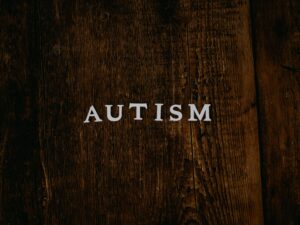In his latest column, David Crisp explores the importance of language in autism acceptance.
There continues to be a much-heated debate and discussion about the preferred language to describe autistic individuals.
In a survey completed by 3,470 UK residents, most autistic adults endorsed the term ‘autistic,’ while professionals preferred the term ‘persons with autism.’
With the growth in autistic self-advocacy, increasingly, professionals are beginning to choose the term ‘autistic.’
I also identify myself as ‘autistic,’ rather than a ‘person with autism.’
How important is identity-first language in terms of autism acceptance and improving the lives of autistic people?
When I posed the question on social media last month ‘how important are the words used to describe autism in terms of autism acceptance, human rights, socioeconomic inequalities in health, social care, employment, legislation, and reduced life expectancy of autistic individuals?’ I was staggered by the number of views and comments I received.

Some people felt that the language used to describe autism is the foundation for positive change and that issues need to be addressed while simultaneously changing the language.
Others felt that debating on semantics can be a barrier to positive change and made ‘no difference to our lives.’ Another posted ‘the effort should be towards improving support for families and individuals with autism.’
Some, however, could not be separated from their autism, as it is integral to who they are as individuals.
Person first language implied that ‘autism is something an individual possesses and separate from the individual’ and ‘perpetuates a negative connotation of autism.’
Another contributor felt that the debate over semantics and ‘bickering over the words we use to describe ourselves’ was unimportant when an estimated 86% of autistics are unemployed or underemployed.
Furthermore, some autistic individuals may be reluctant to identify as ‘autistic’ because of perceived, or actual, negative bias from others.
The more ‘able’ autistic individual may feel reluctant to share their diagnosis upon first meeting (such as in a job interview) because they have encountered rejection in the past. Others, in contrast, are proud to wear their ‘autism’ on their sleeve.
For me personally, I am proud to identify as autistic, but as a trainer and speaker, I sometimes encounter negative comments such as ‘you don’t look autistic.’ But how is an autistic person supposed to look?
In conclusion, I feel that autism terminology should be about acceptance from others and self-acceptance. Ultimately it comes down to the question does autism totally define me or do I view autism as a part of me?
Do I have autism, or does autism have me? Is there more to me than my autism-intellect, creativity, integrity, resilience, determination, etc?
Like most autistics, I identify myself as ‘autistic,’ not a ‘person with autism.’ However, for me, this is the least of the battles that we take on. I would rather concentrate on the socioeconomic inequalities in health, education, social care, and employment.
As an autism professional, I also use the term ‘autistic’ when describing others. That said, I observe the right of every autistic individual to use whatever term they feel most comfortable with.
Ultimately, I am more concerned about the meaning behind the terminology used in autism.
Terminology is very important to the autism community, but changing from person first to identity-first language must not distract from the significant issues affecting that community. Real and lasting change comes when neurodiversity is valued and appreciated by everyone and there is equality of opportunity for all.












